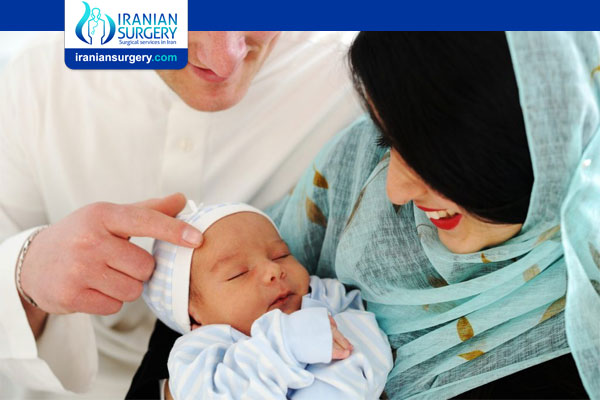Is IVF Allowed in Islam?
What is the Islamic law on IVF? is ivf allowed in islam hanafi? is ivf halal or haram in islam?
In recent years, significant advancements in assisted reproductive technology (ART) made it possible for infertile couples and individuals to conceive. ART techniques include in vitro fertilization, artificial insemination, as well as freezing of eggs and sperm, embryo transfer, and embryo selection. These treatments could be controversial in the context of religion, such as in Islam.
Islamic Views on IVF and embryo transfer
In vitro fertilization (IVF) refers to the collection of sperm and egg and their subsequent fertilization in the laboratory. IVF is permitted in Islam, provided that the sperm and egg come from a married couple.
Embryo transfer is the procedure that follows IVF and this involves implantation of the embryo formed in the lab into the uterus of the woman. As with other ART techniques, embryo transfer is allowed as long as it is done within the context of a valid marriage.
It is not uncommon for IVF to yield more than one embryo. Viable embryos that were not implanted may be frozen for future use. The general view is that frozen embryos may be thawed and implanted to the uterus of the wife whenever the married couple desires to have another child.
The view on embryo transfers once the husband has died is a bit controversial. One paper explains that frozen embryos should only be implanted into the uterus during the duration of the marriage. Since death effectively terminates the contract of marriage according to Islamic law, embryo transfer after the husband’s death is considered illegal. In this sense, embryo transfer after divorce is also illegal.9 Another paper, however, mentioned a case in which permission for embryo transfer was once granted to a widow after her husband’s death, based on the circumstances that bearing her husband’s child would greatly be beneficial for the widow’s wellbeing.
IVF and Sunni Teachings
Since the first successful IVF procedure in 1978, the Islamic religious community has extensively discussed IVF. Egypt issued the first Sunni fatwa regarding IVF in 1980.
The tenets of this fatwa, which holds today, influence IVF practice in both the Sunni and Shi’a Muslim world:
What is allowed?
- . IVF with the husband’s sperm.
- . Artificial insemination as long as the husband’s sperm is used.
- . Cryo-preservation is allowed, but couples must use the frozen embryos during the marriage;
- . Selective reduction is allowed if the mother’s health and life are in jeopardy;
- . Only physicians are allowed to perform IVF treatments and procedures.
NOT allowed:
- . Third-party donation (male or female).
- . You cannot adopt a child produced by third-party donation, as the child belongs to the mother;
- . Posthumous or post-divorce IVF.
- . All forms of surrogacy
- . Sperm banks are not allowed.
IVF and Shi’a Muslim Teachings
Though the 1980 Sunni fatwa has generally held sway in the Shi’a world, a 1999 fatwa issued by Iran’s Ayatollah Ali Hussein Khamanei allowed third-party donation, although the children thus produced are considered “adopted.” This fatwa opened discussion among Shi’a religious leaders of third-party donation, including such questions as: Which name does the child take; and is anonymous donation allowed?
In addition, the unique Shi’a practice of “muta marriage”—a temporary form of marriage—has allowed men to avoid adultery by marrying the third-party donor, if their first wife gives permission.
Read more about : Surrogacy in Islam Sunni
Read more about: Is It Halal to Freeze Eggs?
About Iranian Surgery
Iranian surgery is an online medical tourism platform where you can find the best doctors and fertility specialists in Iran. The price of IVF in Iran can vary according to each individual’s case and will be determined by an in-person assessment with the doctor.
For more information about the cost of IVF in Iran and to schedule an appointment in advance, you can contact Iranian Surgery consultants via WhatsApp number 0098 901 929 0946. This service is completely free.
Source:
https://ivf-worldwide.com/education/introduction/ivf-global-perspective-religious/ivf-islam.html
https://doi.org/10.3109/14647273.2014.997810
Alaro, A. (2012). Assisted Reproductive Technology (ART): The Islamic Law Perspective. In B. Arda & V. Rispller-Chaim (Eds.), Islam and Bioethics (pp. 95–108). Ankara University.
Serour, G., & Dickens, B. (2001). Assisted reproduction developments in the Islamic world. International Journal of Gynecology & Obstetrics, 74, 187–193.

